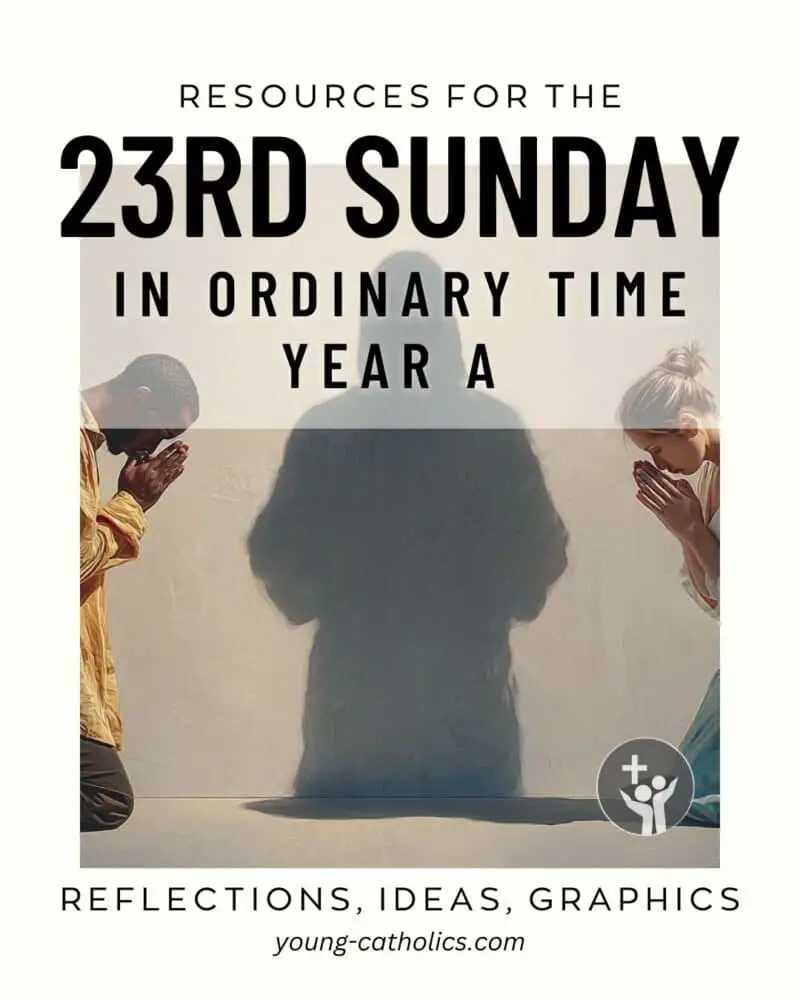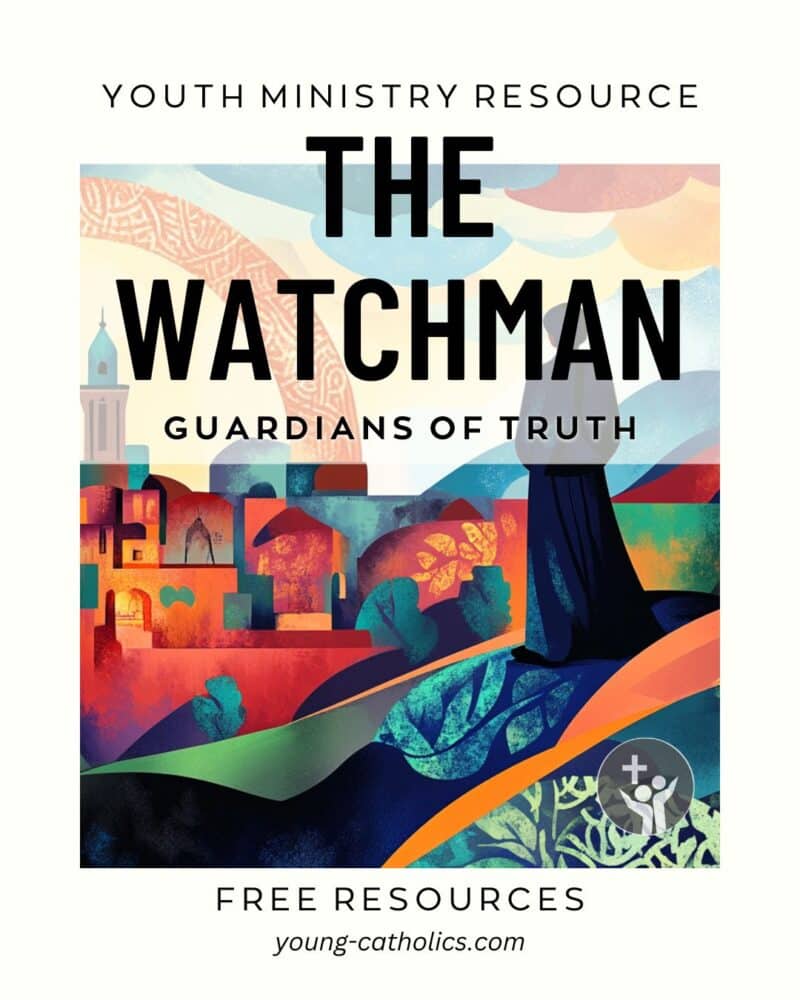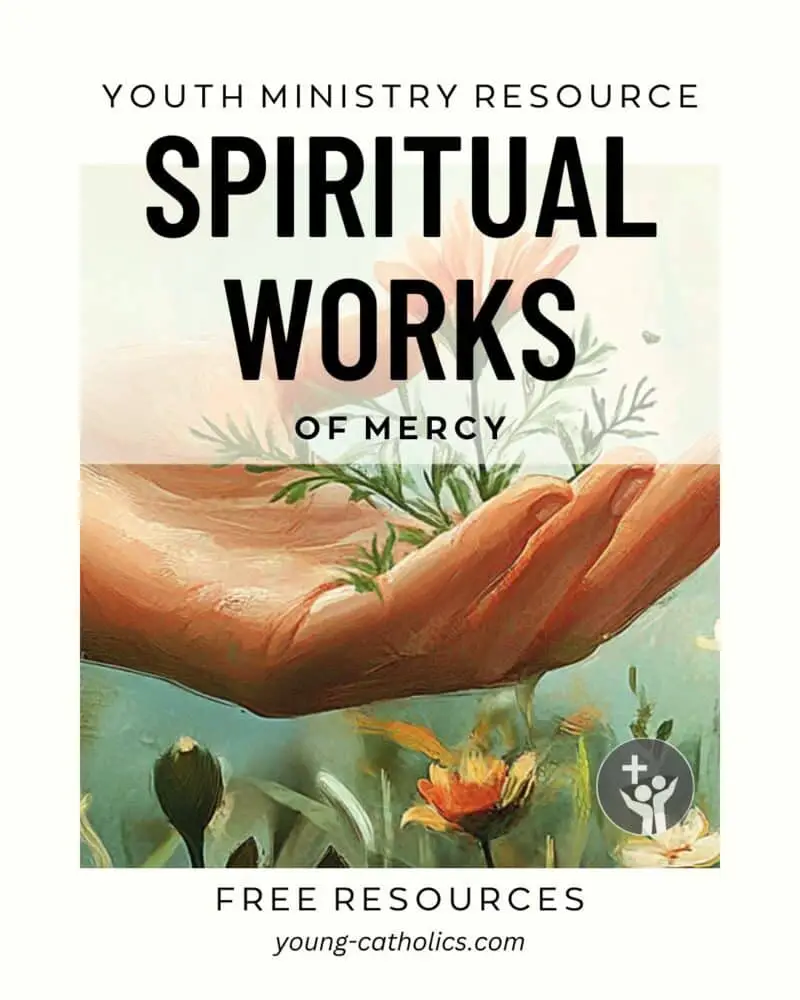23rd Sunday in Ordinary Time Year A
Sunday September 6, 2026

A Community Built on Love
The 23rd Sunday in Ordinary Time Year A reminds us that faith is lived in relationship with others. God does not call us to walk alone. We are asked to care for one another, to guide each other, and to live in love. These readings show how warning, correction, and forgiveness are all part of belonging to God’s people.
In the first reading, Ezekiel is told to be a watchman. His duty is to speak up when others stray. This shows that silence can also bring guilt. God’s word is not only about comfort but also about responsibility. We are called to speak truth with courage, even when it is hard.
The second reading tells us that love fulfills every commandment. To love our neighbor is to follow God’s law. Love never harms, but instead brings peace and unity. The Gospel builds on this by showing how to handle conflict. Jesus tells us that when we come together in His name, He is with us.
On the 23rd Sunday in Ordinary Time Year A, the message is clear. Love guides correction, warning, and reconciliation. Community is where God’s presence is made real, and where faith grows strong.
Mass Readings for the 23rd Sunday in Ordinary Time Year A
- First reading – Ezekiel 33:7-9: I appoint you as watchman for the house of Israel. If you fail to warn the wicked and they die in guilt, you’re responsible. If you warn them and they don’t turn, they die, but you’re saved.
- Responsorial Psalm – Psalm 95: Let us sing joyfully to the Lord, acclaiming our salvation, and coming into His presence with thanksgiving. But heed the warning not to harden our hearts, reflecting on past disobedience.
- Second reading – Romans 13:8-10: Owing love to one another fulfills the law. The commandments are summarized by loving your neighbor as yourself, for love does no evil and is the complete fulfillment of the law.
- Gospel – Matthew 18:15-20: If a brother sins, discuss it privately, then with witnesses if needed, and finally with the church. What is agreed on earth reflects in heaven, and where people gather in Jesus’s name, he is present.
The readings above are for lectionary cycle A. For other years see the links below:
23rd Sunday in Ordinary Time Year B
23rd Sunday in Ordinary Time Year C
If your brother sins against you, go and tell him his fault between you and him alone. If he listens to you, you have won over your brother.
Matthew 18:15
Themes for the 23rd Sunday in Ordinary Time Year A
The 23rd Sunday in Ordinary Time Year A focuses on responsibility, love, and community. The readings show how people should care for one another, correct each other, and live in love.
- Responsibility for Others: Ezekiel speaks about being a watchman. This means people have a duty to warn others when they are doing wrong.
- Loving Others Fulfills the Law: Paul teaches that love sums up all the commandments. If people love their neighbors, they will not harm them.
- Correcting with Kindness: Jesus explains how to correct someone who sins. The goal is to bring them back, not to shame them.
- Church as a Community: Jesus tells his followers to involve the church when needed. The church helps guide people toward what is right.
- Power of Agreement: Jesus says that when people agree in faith, their prayers matter. God listens when people pray together.
- God’s Presence in Unity: Jesus promises to be present when people gather in his name. This shows the importance of faith and community.
The 23rd Sunday in Ordinary Time Year A teaches about love, responsibility, and the role of the church. It reminds people to help each other grow in faith and goodness.
Resources for the 23rd Sunday in Ordinary Time Year A

The Watchman: Being Guardians of Truth
Ezekiel 33:7-9 tells how the Lord gave Ezekiel the role of a watchman. His task was to warn people when they strayed, even if they did not listen. This call shows that faith is not only about personal choices but also about caring for others. Speaking the truth with love helps guide people toward what is right.
In the 23rd Sunday in Ordinary Time Year A, this message is brought to life through the activity The Watchman: Being Guardians of Truth. It helps young people see how responsibility and care for others still matter today. By thinking about real situations, they discover how faith asks them to encourage others and share truth. This builds courage to live out God’s call in daily life.

Together We’re Better Reflection and Discussion Questions
Matthew 18:15-20 shows how Jesus values honesty and care in relationships. He teaches that when someone sins, it is better to speak directly and seek peace rather than ignore the problem. This is not about judging others harshly but about helping one another grow in faith. The goal is always reconciliation and unity.
The Together We’re Better Reflection uses this teaching to think about how we handle faults among friends. On the 23rd Sunday in Ordinary Time Year A, it reminds us that speaking up with love can be difficult but also necessary. True friendship and real community mean caring enough to guide others gently. In this way, we follow Jesus’ call to live in peace with one another.

The Spiritual Works of Mercy
Matthew 18:15-20 shows how Jesus cares about relationships in the community. He teaches that when someone strays, the goal is not punishment but healing. The steps He gives are meant to bring people back together. They show that love and mercy should guide every action, even when it is hard to face conflict.
The spiritual works of mercy carry this same spirit. They help us walk with one another by teaching, comforting, forgiving, and praying. On the 23rd Sunday in Ordinary Time Year A, the Gospel and these works remind us that faith is lived in community. We are called to guide, support, and forgive each other. In doing so, we make Christ present among us.

The Book of Ezekiel: A Call to Speak Out
In Ezekiel 33:7-9, proclaimed on the 23rd Sunday in Ordinary Time Year A, God appoints the prophet as a watchman. This role is not just about warning but about responsibility before God. Ezekiel often carries messages of judgment and hope, showing how God calls His people to return to covenant faithfulness even after exile.
This passage fits the wider theme of accountability in Ezekiel. The prophet reminds Israel that each person’s choices matter before God. While the book also promises renewal and a restored heart, here the focus is on speaking truth even when it is unwelcome. Silence in the face of sin is seen as failure to live one’s mission.

Psalm 95: A Song of Praise and Warning
Psalm 95, used on the 23rd Sunday in Ordinary Time Year A, calls the community to joyful worship. The psalm praises God as Creator and Shepherd, inviting His people to enter His presence with thanksgiving. It is both an expression of joy and a reminder that true worship includes listening to God’s voice with open hearts.
The second half recalls Israel’s rebellion in the desert. It warns against stubbornness that resists God’s guidance. In the larger psalter, Psalm 95 stands as a summons to obedience and trust, connecting praise with faithful living. It shows that worship must lead to a heart ready to follow God’s will.

The Letter to the Romans: Love as the Fulfillment of the Law
Romans 13:8-10, heard on the 23rd Sunday in Ordinary Time Year A, teaches that love sums up all commandments. Paul writes to a diverse community in Rome, helping them live as one body in Christ. The focus on mutual love continues the letter’s theme of unity, where faith is expressed through action and care for others.
The passage connects to Paul’s vision of the Gospel’s power to bring salvation to all, Jew and Gentile alike. By loving others, Christians live out God’s justice and mercy without relying on strict observance of rules alone. Love becomes the visible sign of a transformed life.

The Gospel of Matthew: Restoring Community in Christ
Matthew 18:15-20, proclaimed on the 23rd Sunday in Ordinary Time Year A, teaches how to handle conflict within the church. The Gospel of Matthew often stresses community life and faithfulness to Jesus’ teaching. Here, Jesus gives steps for correction that seek healing, not punishment, and places reconciliation at the center of discipleship.
The passage reflects Matthew’s theme of the church as a gathered community under Christ’s authority. Unity and mercy are emphasized, showing that relationships matter deeply in the Kingdom of God. Where believers meet in His name, Christ is present, guiding them toward forgiveness and peace.
Homilies and Commentaries for the 23rd Sunday in Ordinary Time Year A
Living the Debt of Love
Jeff Cavins reflects on the readings for the 23rd Sunday in Ordinary Time. He discusses how being debt-free is admirable, but as Christians, we owe others a debt of love. Paul’s words in Romans 13:8 emphasize loving one another as fulfilling the law. Jeff emphasizes the importance of putting others first, even when they bother us, and letting go of grudges. He refers to Matthew 18:15-20, where Jesus instructs addressing conflicts directly, seeking resolution. Jeff reminds us that loving others means forgiving, and our love should mirror the Lord’s love for us. He concludes by urging listeners to remember that they owe one another the same inexhaustible love that the Lord bestows upon them.
Is It OK to Judge Someone?
Father Mike Schmitz delves into the intricacies of judgment, exploring the balance between Jesus’ commands to judge and not to judge. He emphasizes that while we shouldn’t judge a person’s heart, we’re called to assess actions. Father Mike underscores that evaluating actions doesn’t equate to condemnation; it’s about making informed choices based on behavior. He addresses society’s fear of judgment, linking it to a fractured sense of identity. However, for Christians grounded in their identity as beloved children of God, human judgment holds no sway. Instead, their focus remains on God’s judgment and the dual responsibility of loving others and discerning actions with compassion and truth.
Where There Is Right Relationship, There Is the Church
Father Richard Rohr reflects on the Gospel message for the 23rd Sunday in Ordinary Time Year A. He emphasizes Jesus’ guidance on addressing conflicts within relationships. Jesus instructs followers to communicate directly with someone who has wronged them rather than engaging in gossip or triangulation. Father Rohr underscores the significance of maintaining honest and loving relationships, as they define us. He interprets Jesus’ concept of church as a gathering of two or three individuals united in love and trust, transcending religious affiliations. Father Rohr discusses forgiveness, highlighting its transformative power and its role in breaking the cycle of unforgiveness and hurt.
To Win Them Back
Scott Hahn reflects on the 23rd Sunday in Ordinary Time Year A readings. He compares Ezekiel’s role as a watchman over Israel with Jesus’ establishment of His disciples as Church guardians. Jesus grants them powers to forgive sins, conditional on their communion with Him. The readings underscore the duty to correct sinners within the community, with accountability for their souls. This duty is rooted in love for others’ salvation. Hahn highlights that correction should stem from care, not anger, and parallels this with the Psalm’s message of urging sinners to heed God’s voice and turn from false paths.
Judgment and Love
Bishop Robert Barron’s homily on the 23rd Sunday in Ordinary Time Year A delves into the balance between non-judgmentalism and righteous judgment. He emphasizes that Jesus’ teaching doesn’t prohibit all judgment, but rather condemns superiority and aggression. Barron discusses the misconception of non-judgmentalism and how it clashes with moral correction. He suggests a step-by-step approach for loving correction: addressing the issue privately, involving a few others, and seeking community support. This, he says, fosters love over judgment. Barron underscores the importance of intervening when behaviors are self-destructive while maintaining compassion. He concludes that this approach aligns with Jesus’ teachings and promotes love within the community.
Reflection for the 23rd Sunday in Ordinary Time Year A
The 23rd Sunday in Ordinary Time Year A focuses on responsibility, love, and justice within the Christian community. The readings show that faith is not just personal; it involves caring for others. Whether by correcting someone, standing up for what is right, or handling conflicts with kindness, believers are called to act. These reflections explore how these lessons apply to daily life.
Resolving Conflicts in the Church
The Gospel for the 23rd Sunday in Ordinary Time Year A focuses on how to handle disagreements within the Christian community. Jesus gives clear steps for addressing conflicts. First, speak to the person privately. If that does not work, involve a few others. If the problem continues, bring it to the church. If the person still refuses to listen, they may be separated from the community.
This shows that Jesus understands that disagreements will happen. The church is made up of people, and people make mistakes. Instead of ignoring problems or letting them grow, Jesus teaches a way to deal with them fairly. The goal is not punishment but reconciliation.
Jesus also reminds his followers that their actions matter. When they make decisions in unity and prayer, those decisions carry authority. God is with them, guiding their choices.
This passage teaches that conflict should not divide the church. It should be handled with patience and love. The 23rd Sunday in Ordinary Time Year A reminds believers that Jesus is always present in their community, even in difficult times.
Responsibility for Others
The 23rd Sunday in Ordinary Time Year A calls people to care for one another. The first reading shows this when God tells Ezekiel that he must warn others about their sins. If he fails to speak up, he will share in their guilt. This shows that faith is not just about personal choices but also about helping others live rightly.
The second reading also speaks about responsibility. Paul teaches that love is the fulfillment of the law. Loving others means doing what is best for them. Sometimes that includes correcting them when they are making harmful choices.
This is not always easy. People may not want to hear correction, and it can be uncomfortable to speak up. But ignoring wrongdoing does not help anyone. True love means caring enough to guide others toward what is right.
The 23rd Sunday in Ordinary Time Year A encourages believers to think beyond themselves. It is not enough to live a good life alone. Faith means looking out for others and helping them grow closer to God.
Speaking Out Against Injustice
The readings for the 23rd Sunday in Ordinary Time Year A remind people that silence in the face of wrongdoing is not an option. The first reading makes it clear that failing to warn others about sin is a serious mistake. God calls people to speak up, even when it is difficult.
This applies not only to personal relationships but also to society. When corruption, injustice, or cruelty exist, people of faith must take a stand. Ignoring these issues allows them to grow.
Paul’s message about love also connects to this idea. Love is not just about kindness. It is about doing what is right. Allowing evil to continue is not love—it is neglect.
Speaking out may come with challenges. Others may disagree or push back. But doing what is right is more important than avoiding conflict. The 23rd Sunday in Ordinary Time Year A encourages believers to be strong, speak with love, and work for justice in all areas of life.
Jesus teaches that love and responsibility go hand in hand. Faith is not only about personal prayer but also about how people treat one another. The 23rd Sunday in Ordinary Time Year A encourages believers to live with courage, compassion, and a commitment to what is right.
Prayer
Lord, help us to love others with patience and truth. Give us the wisdom to correct with kindness and the courage to speak against injustice. May we seek peace in our relationships and work for goodness in our communities. Be with us when we gather in your name. Amen.
Reflection Questions for the 23rd Sunday in Ordinary Time Year A
- Have you ever had to correct someone with kindness? How did it go?
- How do you handle conflict in your own life?
- Why do you think Jesus gives a process for resolving disputes?
- What does it mean to be responsible for others in faith?
- How can love guide the way you correct or help someone?
- Have you ever spoken out against wrongdoing? What happened?
- Why is silence in the face of injustice a problem?
- How can prayer help in making difficult decisions?
- What role does the church play in helping people grow in faith?
- How does the 23rd Sunday in Ordinary Time Year A challenge you to live differently?
Social Media Graphics and Bulletin Artwork for the 23rd Sunday in Ordinary Time Year A
If you would like an image to be made available as a specific product (card, poster, mug, etc.) or as an extra high resolution image for personal use just post a comment about what you want and we will create a link to our online store for you.
In His Presence Together

This image for the 23rd Sunday in Ordinary Time Year A shows the power of prayer in community and the promise that Christ is with us when we gather in His name.
Perfect for parish bulletins, newsletters, and other ministry needs, it offers a visual reminder of unity in faith. Download and share it with your community today.
Paid subscribers may download a large copy this digital artwork without watermarks, suitable for use in bulletins, social media, newsletters, etc., free of charge by clicking here. You must be logged in as a paid subscriber to access the file.
Only current paid subscribers have the rights to use the artwork.
Music Suggestions for the 23rd Sunday in Ordinary Time Year A
The music selections for the 23rd Sunday in Ordinary Time Year A reflect themes of love, unity, and responsibility. Some songs focus on being called to serve others, just as Ezekiel was told to warn the people. Others highlight the importance of love, echoing Paul’s message that love fulfills all the commandments. There are also songs about peace, reconciliation, and the presence of God in the community, connecting to Jesus’ teaching on resolving conflicts and gathering in his name. The mix of traditional hymns and contemporary songs offers something for different musical styles while keeping the focus on faith and community.
- Anthem by Tom Conry
- As It Is In Heaven by Matt Maher
- Blest Be the Tie that Binds by Dominika Jurczuk Gondek
- Can We Love? by Tom Booth
- Center by Charlie Hall
- City of God by Dan Schutte
- Doxology by Passion and David Crowder Band
- Forth in the Peace of Christ We Go by Luke D. Rosen
- Gather Us In by Marty Haugen
- Lay It Down by Matt Maher
- Let There Be Peace on Earth by Jill Jackson & Sy Miller
- Love Divine All Loves Excelling by Rowland H. Pritchard & Charles Wesley
- Lord I Need You by Matt Maher
- Make Me a Channel by Sarah Hart
- Ubi Caritas by Bob Hurd & Pedro Rubalcava
- We Are Many Parts by Marty Haugen
- We Bring Our Gifts to Your Altar by Brian Flynn
- What Wondrous Love by Connie Campbell Hart & Randall Debruyn
- Where Charity and Love Prevail
- Your Love Awakens Me by Phil Wickham
Music directors and musicians can use these selections to bring out the message of the 23rd Sunday in Ordinary Time Year A. Whether leading the congregation in traditional hymns or contemporary songs, the goal is to help people reflect on the readings. Try these selections and share your own recommendations in the comments.
Questions and Answers for the 23rd Sunday in Ordinary Time Year A
What does it mean to be a watchman in the first reading?
A watchman is someone who warns others of danger. In the first reading, God tells Ezekiel that he must warn people when they are doing wrong. If he stays silent, he will share in their guilt. This means that people of faith have a duty to help others choose what is right.
How does the first reading apply to daily life?
It teaches that people should not ignore wrongdoing. If someone is making bad choices, it is loving to guide them back to the right path. Staying silent when someone is in trouble is not real kindness.
Why does Paul say love fulfills the law?
Paul explains that love is the foundation of all the commandments. If people truly love others, they will not steal, hurt, or lie. Loving others means treating them with kindness and respect.
What does Jesus teach about handling conflict in the church?
Jesus gives a clear process for resolving conflicts. First, talk to the person privately. If that does not work, ask others to help. If the problem continues, involve the church. This method is meant to restore relationships, not to shame anyone.
Why does Jesus say to involve the church in conflicts?
The church is meant to be a place of support and guidance. When problems cannot be solved privately, the church community can help. The goal is to bring peace, not to push people away.
What does Jesus mean when he says decisions on earth will be honored in heaven?
Jesus is saying that when believers make decisions in unity and faith, they have real authority. God is with them when they act wisely and with love. This reminds people that their choices matter.
How does the 23rd Sunday in Ordinary Time Year A show the power of community?
The readings show that faith is not just personal. People must help each other live rightly, resolve conflicts, and stand up for justice. The church is a community where people pray and make decisions together.
What does the 23rd Sunday in Ordinary Time Year A teach about responsibility?
It teaches that people should not ignore sin, injustice, or conflict. They should guide others, correct mistakes, and work for peace. Faith is not just about personal prayer but about caring for others.
How does the 23rd Sunday in Ordinary Time Year A challenge believers to act?
It calls people to be honest and loving. It reminds them to correct others with kindness, resolve conflicts with patience, and stand against wrongdoing. Living in faith means taking action, not just watching from the sidelines.
How can we apply the lessons of the 23rd Sunday in Ordinary Time Year A?
People can apply these lessons by speaking up when they see wrongdoing, helping others make good choices, and handling conflicts with love. They can also pray with others, knowing that God listens when they gather in his name.
Love and Responsibility in Faith
The 23rd Sunday in Ordinary Time Year A teaches about responsibility, love, and community. The first reading speaks about being a watchman, meaning people must warn others when they are doing wrong. The second reading explains that love is the center of God’s law. The Gospel shows how to correct someone with kindness and patience.
Jesus teaches that correcting others should be done privately at first. If that does not work, others can help. If the person still does not listen, the church should step in. This process shows that correction is meant to bring people back, not to push them away.
This Sunday also reminds people that God listens when they pray together. Jesus promises to be with those who gather in his name. The 23rd Sunday in Ordinary Time Year A highlights love, responsibility, and the power of community.
Your Turn
The readings for the 23rd Sunday in Ordinary Time Year A invite people to think about their role in helping others. It is not always easy to correct someone, but it is part of caring for them. Love is at the center of this teaching.
Take a moment to reflect on these messages. Have you ever needed to correct someone or been corrected yourself? How did it feel? Share your thoughts and experiences in the comments.


Leave a Reply